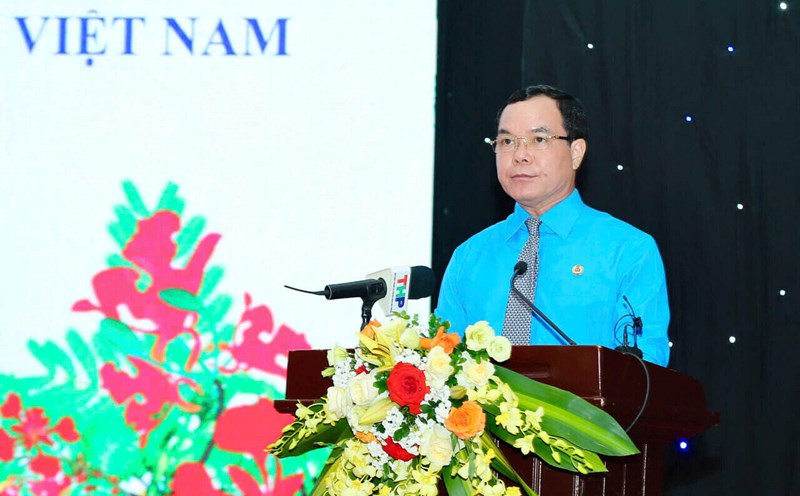Reducing the burden of administrative procedures
From July 1, 2025, personal identification numbers will be used instead of tax numbers, helping people look up information more conveniently on VNeID. At the same time, the Ministry of Public Security is implementing a 9-day and night peak period to clean up marriage data.
The plan to launch a 9-day and night peak period to clean up marriage data and implement a reduction in procedures for confirming marital status from the Ministry of Public Security's bridge point to the local police identified 5 key groups of tasks, including: Standarizing and synchronizing marriage and divorce data, confirming marital status from electronic civil status databases, the Court with the National Population Database under the Ministry of Public Security.
From September 2025, people will no longer have to go through marriage confirmation procedures, because information will be transparent on the application.
Ms. Nguyen Thi Huong (Hanoi) shared that when preparing to buy her first apartment, she was asked to provide a certificate of singleness to complete the notarization procedures. It took me nearly two weeks to get a singles certificate. This delay almost cost me the opportunity to buy an apartment because I could not complete the procedures on time" - Ms. Huong said.
Similarly, Mr. Tran Van Nam (Lao Cai) when buying a car in installments also had to verify his marital status through a complicated process. "I have to go to the old household registration place to request confirmation, then return to my current residence to complete the procedures. This process took nearly a month, it was very tiring" - Mr. Nam said.
According to the Ministry of Public Security, data on marital status directly affects many essential public services such as birth registration, marriage, divorce, inheritance, death, and transfer of assets. However, the data is not yet synchronous, causing difficulties for people and wasting resources.
This peak period will standardize and synchronize marriage data from electronic household registration databases and display on VNeID.
In recent years, digital transformation in public administration has been associated with the fear of cumbersome procedures and piling up documents. But VNeID has contributed to gradually eliminating that worry.
To date, the application has had more than 83.5 million people registered for identification accounts, nearly 60.6 million accounts have been activated. Ho Chi Minh City alone has granted more than 5.8 million accounts, becoming one of the leading localities in the country.
The 35 utilities of VNeID are not just numbers, but a real change in the way public services are approached. Registering for residence, issuing household registration documents, passports, driver's licenses, temporary residence declarations, health insurance examinations, criminal records, birth certificates, death certificates... - all can be done through a few steps on VNeID.
Mr. Van Dung (Hanoi) shared: The VNeID application has unexpected benefits. In May 2025, my car's driving license expired, but since the beginning of April, VNeID has warned that it is about to expire. I did the procedures to change the level right on the application, very quickly, no longer having to run around like before".
In the health sector, Ho Chi Minh City has integrated nearly 1.2 million electronic health book data, nearly 4 million health insurance visits using CCCD or VNeID. Hanoi aims to have 100% of people using electronic health books integrated on VNeID by the end of 2025.
To make VNeID a super app
After 3 years of implementation, VNeID is not only an application, but has become a symbol of efforts to bring digital transformation to every stage of life, taking people as the center.
The representative of the Ministry of Public Security emphasized: "Digital transformation is not about making things happen, but must help people clearly see the benefits and enjoy the fruits".
VNeID's past journey is very remarkable. But there is still much work ahead to make the application truly a convenient, safe, and popular "digital key" for all Vietnamese citizens.
Mr. Ha Vinh (HCMC) shared: "The VNeID application is great, I support it. However, many procedures should have clearer instructions. For example, when registering for temporary residence on VNeID, I submitted 4-5 times the documents but they were not completed because the steps required to take photos of the documents did not clearly state which types and how to take photos.
People expect the progress of returning results on VNeID to be accelerated. If you do it online, you should also receive results online, avoiding the situation of taking time online and having to go directly to do the procedure.
Another issue that is of concern to the business community is that from July 1, 2025, businesses must implement electronic identification. According to Clause 4, Article 40 of Decree 69/2024/ND-CP, businesses will have to use identification accounts on VNeID to access and connect with administrative information systems.
If they do not register an identification account, businesses will have difficulty performing administrative procedures, affecting business operations. However, synchronizing data connections between ministries and branches is still a "bottleneck". Many businesses have reported information overlapping errors between tax authorities and business registration agencies, causing registration of identification accounts to be delayed.
For example, in Ho Chi Minh City, by the end of May 2025, the whole city had only issued 33,479 electronic identification accounts to agencies, organizations and businesses. Compared to more than 345,000 enterprises, cooperatives and other organizations in the area, the granting rate is still very low, only reaching 9.69%.
Without stronger data synchronization solutions, the convenience for businesses - one of the groups that benefit the most from digital transformation - will be limited.
From July 1, 2025, according to Circular 86 of the Ministry of Finance, personal identification codes will also be used instead of tax codes. When people are granted a citizen identification card, it will be considered a tax code, thereby helping to prevent information overlap and ensuring that each individual has only one tax code, helping to improve accuracy and transparency in tax management.












